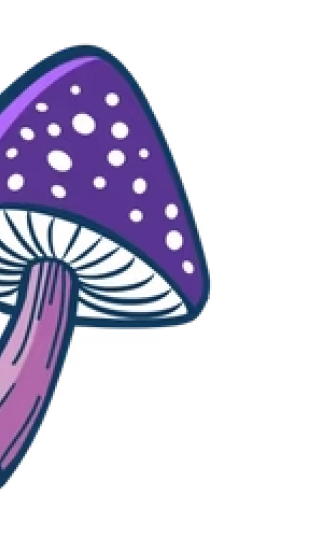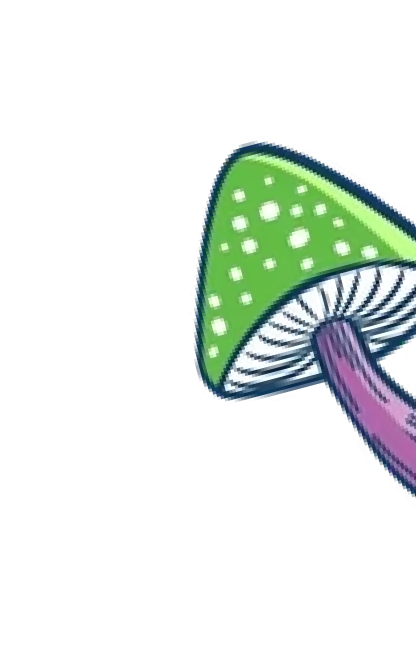Reishi mushroom, also known as Ganoderma lucidum, is a fungus that has been used for centuries in traditional Chinese medicine. It has gained popularity in recent years due to its potential health benefits. If you are considering incorporating reishi mushroom into your routine, you may be wondering how long it takes for this herbal remedy to work. In this article, we will explore the different aspects of reishi mushroom and their effects, helping you gain a deeper understanding of this fascinating natural remedy.
Understanding the Reishi Mushroom
The Origin and History of Reishi Mushroom
Reishi mushroom has a rich history that dates back thousands of years. In ancient China, it was also known as the "immortality mushroom" and was highly revered for its medicinal properties. Emperors and nobles would often consume reishi mushroom in the hopes of prolonging their lives and achieving vitality. Over time, reishi mushroom spread to other regions of Asia, and its popularity as a natural remedy grew.
The cultivation and harvesting of reishi mushroom require specific environmental conditions, with some of the highest quality reishi mushrooms traditionally being grown on logs or stumps of deciduous trees. This process can take several months to complete, as the mushroom undergoes different growth stages before reaching maturity. The traditional methods of preparing reishi mushroom for consumption involved drying and decocting it into teas or tonics, which were believed to enhance its medicinal properties.
The Nutritional Composition of Reishi Mushroom
Reishi mushroom contains a wide range of bioactive compounds that contribute to its potential health benefits. These include polysaccharides, triterpenes, amino acids, and antioxidants. Polysaccharides, in particular, are believed to play a key role in the immune-modulating effects of reishi mushroom. While reishi mushroom is not a significant source of essential nutrients, its unique composition sets it apart as a potential health-promoting supplement.
Studies have shown that reishi mushroom extracts may have anti-inflammatory, antioxidant, and immunomodulatory properties, making it a subject of interest in the field of natural medicine. The synergistic effects of the various compounds found in reishi mushroom contribute to its adaptogenic properties, which are believed to help the body adapt to stress and maintain balance. As research on reishi mushroom continues to evolve, scientists are uncovering more about its mechanisms of action and potential therapeutic applications.
The Process of Consuming Reishi Mushroom
Reishi mushroom, also known as Ganoderma lucidum, has been revered for centuries in traditional Chinese medicine for its potential health benefits. This unique fungus is available in various forms, catering to different preferences and lifestyles. Whether you prefer the convenience of capsules, the versatility of powders and extracts, or the ritual of brewing traditional teas, there is a reishi mushroom option for everyone.
When it comes to incorporating reishi mushroom into your routine, understanding the recommended dosage and consumption methods is crucial. Factors such as age, health status, and wellness goals can influence the appropriate amount to consume. Starting with a low dose and gradually increasing it is a common approach to assess tolerance. Consulting a healthcare professional or following the guidelines on the product label can provide personalized recommendations for optimal usage.
Different Forms of Reishi Mushroom
Reishi mushroom powders and extracts are popular choices for those looking to add a nutritional boost to their beverages or meals. These concentrated forms offer a convenient way to enjoy the benefits of reishi mushroom without compromising on taste or quality. Capsules, on the other hand, provide a simple and standardized dose of reishi mushroom, ideal for those with busy lifestyles or specific dosing requirements.
For purists who appreciate the art of brewing, traditional reishi mushroom teas offer a soothing and authentic experience. Made from dried reishi mushroom slices, these teas provide a comforting way to unwind and reap the natural goodness of this revered fungus. Whichever form you choose, exploring the diverse options available can help you find the perfect match for your preferences and wellness goals.
Recommended Dosage and Consumption Methods
When it comes to reishi mushroom consumption, there is no one-size-fits-all approach. Tailoring the dosage to your individual needs and lifestyle is key to maximizing the benefits of this adaptogenic mushroom. Some individuals may prefer to incorporate reishi mushroom into their daily routine as a wellness tonic, while others may reserve it for times of increased stress or immune support.
Understanding how to integrate reishi mushroom into your diet and self-care regimen can empower you to harness its full potential. Whether you choose to enjoy it in a morning smoothie, a calming cup of tea, or a convenient capsule, the versatility of reishi mushroom ensures that you can experience its holistic benefits in a way that aligns with your unique preferences and wellness journey.

The Timeline of Reishi Mushroom Effects
Immediate Effects of Reishi Mushroom
Reishi mushroom is not known for providing immediate, noticeable effects like caffeine or prescription medications. Instead, its benefits are often experienced over time. Some individuals report feeling a sense of calm and relaxation after consuming reishi mushroom, which may be attributed to its potential to support stress management. However, it is essential to note that individual responses can vary, and the effects of reishi mushroom may not be universally felt by all users.
When considering the immediate effects of reishi mushroom, it is important to understand that this natural remedy works in harmony with the body's own processes. Unlike synthetic substances that may produce sudden changes, reishi mushroom gently interacts with the body, gradually promoting balance and well-being. This gentle approach is why some users may not feel an immediate impact but notice subtle improvements in their overall health and vitality over time.
Long-Term Effects of Reishi Mushroom
Long-term consumption of reishi mushroom may offer a range of health benefits. Its potential immunomodulatory effects have been extensively studied, suggesting a positive impact on the immune system. Reishi mushroom is also believed to possess antioxidant properties, which may help protect against oxidative stress. Furthermore, some research suggests that it may support liver health, cardiovascular health, and overall well-being. However, more studies are needed to fully understand the long-term effects of reishi mushroom.
Exploring the long-term effects of reishi mushroom unveils a fascinating journey of discovery into the intricate ways this natural ingredient interacts with the human body. As individuals incorporate reishi mushroom into their daily routines, they may notice improvements in their energy levels, resilience to common illnesses, and overall vitality. The cumulative effects of this ancient remedy may extend beyond physical well-being to encompass mental clarity, emotional balance, and a deep sense of holistic wellness.
Factors Influencing the Effectiveness of Reishi Mushroom
Individual Health and Lifestyle Factors
Several individual factors may influence the effectiveness of reishi mushroom. These include overall health, underlying health conditions, diet, exercise, and lifestyle habits. Reishi mushroom is not a magic cure-all, and its effects may vary depending on these factors. For optimal results, it is important to adopt a holistic approach to health, incorporating reishi mushroom as part of a balanced lifestyle.
It is crucial to note that individual responses to reishi mushroom can vary widely. Factors such as age, gender, genetic predisposition, and even gut health can play a role in how effectively the body utilizes the bioactive compounds present in reishi mushroom. Therefore, it is recommended to consult with a healthcare provider before incorporating reishi mushroom into your routine, especially if you have existing health conditions or are pregnant or nursing.
Quality and Preparation of the Mushroom
The quality and preparation of reishi mushroom products can greatly impact their effectiveness. When choosing a reishi mushroom supplement, look for reputable brands that prioritize quality control and third-party testing to ensure purity and potency. Proper storage and handling of the product, as well as following the recommended dosage instructions, are also essential for maximizing its potential benefits.
Furthermore, the form in which reishi mushroom is consumed can also influence its bioavailability and efficacy. While capsules and powders are convenient options, traditional methods like decoctions or tinctures may offer a more concentrated dose of active compounds. Understanding the different preparation techniques and their effects can help individuals choose the most suitable form of reishi mushroom for their specific health goals.
Potential Side Effects and Precautions
Common Side Effects of Reishi Mushroom
While reishi mushroom is generally considered safe for most individuals when taken as directed, it may cause some mild side effects in certain cases. These can include digestive discomfort, dryness of the mouth and throat, skin irritation, or allergic reactions. If you experience any persistent or severe side effects, it is advisable to discontinue use and consult a healthcare professional.
Reishi mushroom, also known as Ganoderma lucidum, has been used for centuries in traditional Chinese medicine for its potential health benefits. It is rich in antioxidants and may help support the immune system, reduce inflammation, and improve overall well-being. Some studies suggest that reishi mushroom may also have anti-cancer properties, although more research is needed to confirm these effects.
Who Should Avoid Reishi Mushroom
Although reishi mushroom is well-tolerated by most people, there are certain individuals who should exercise caution or avoid its use altogether. These include pregnant or breastfeeding women, individuals with known allergies to mushrooms, those taking anticoagulant medications, or individuals with specific medical conditions. It is always recommended to seek medical advice before starting any new supplement or herbal remedy, particularly if you have pre-existing health conditions or are taking other medications.
Individuals with autoimmune disorders should also be cautious when considering reishi mushroom, as it may stimulate the immune system and potentially worsen autoimmune conditions. Additionally, individuals scheduled for surgery should discontinue the use of reishi mushroom at least two weeks before their scheduled procedure, as it may interfere with blood clotting and anesthesia. As with any supplement, it is important to purchase reishi mushroom products from reputable sources to ensure quality and purity.
Conclusion
In conclusion, the time it takes for reishi mushroom to work may vary from person to person, and its effects may be experienced differently over time. As with any supplement, it is essential to approach reishi mushroom with realistic expectations and a commitment to long-term use. By understanding its origins, nutritional composition, and consumption methods, you can make an informed decision about incorporating reishi mushroom into your wellness routine. Remember to prioritize quality, follow recommended dosages, and listen to your body for optimal results. Gummies and drinks are an easy way to get started, Melting Forest has great options to start your journey. As always, consult a healthcare professional for personalized advice and guidance on the use of reishi mushroom or any other natural remedy.



















